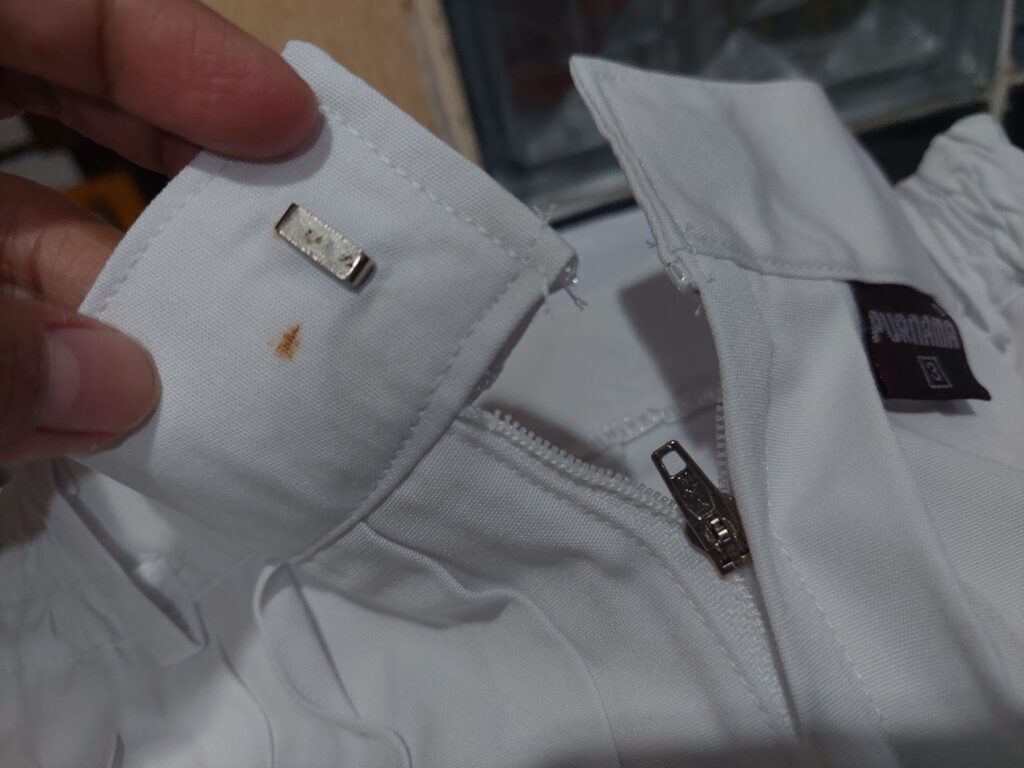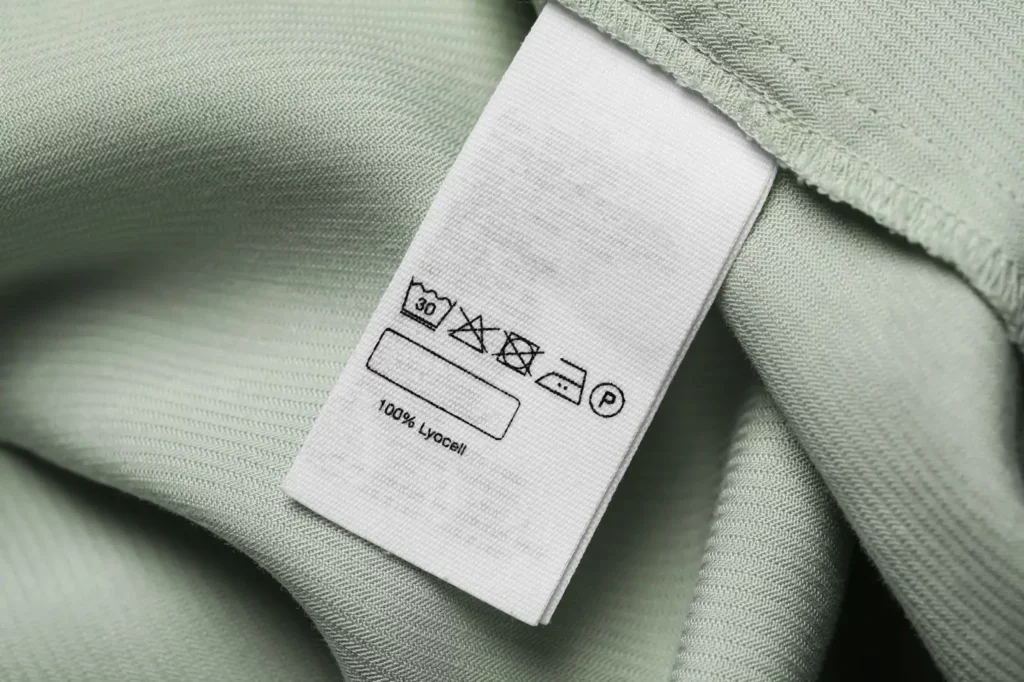Delicate garments, luxurious silks, and charming knits elevate our wardrobes with a touch of elegance and comfort. But maintaining their beauty requires special care. Harsh washing methods can quickly lead to fading colors, misshapen silhouettes, and irreversible damage. This comprehensive guide equips you with the knowledge and techniques to ensure your delicates stay looking their finest, wash after wash.
Here, you will discover the secrets to dealing with the delicate wash cycle, from choosing the right settings to selecting the most suitable detergents. We’ll discuss the art of hand-washing, a gentle approach ideal for your most treasured pieces.
What clothes are delicate?
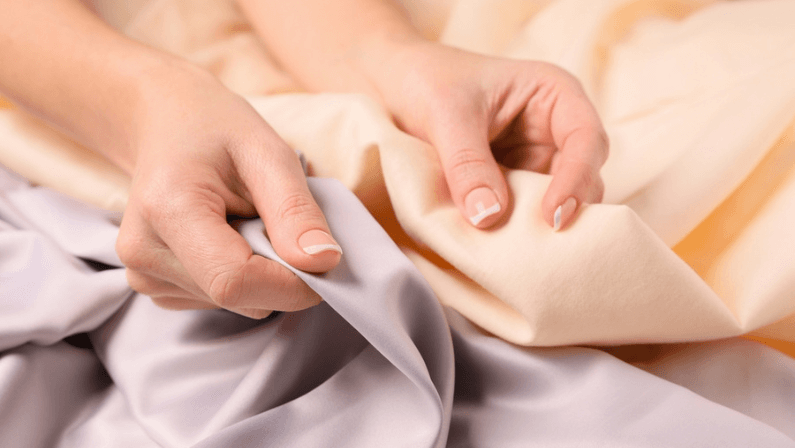
Delicate fabrics are typically thin, lightweight, and easily damaged.
This includes:
- Silk and satin: Luxurious fabrics prone to snags and tears.
- Lingerie: Delicate materials like lace and mesh require gentle handling.
- Wool and cashmere: Prone to shrinking and felting if not washed correctly.
- Knits: Can lose their shape if subjected to rough washing.
What is a delicate wash?
A delicate wash setting or cycle uses cooler water temperatures (around 30°C or cold) and slower drum rotations to minimize agitation and prevent damage to delicate fabrics. Compared to a regular cycle, a delicate wash uses less water and spins at a lower speed, reducing the amount of friction and stress placed on the clothes.
How often should you wash delicate clothing?
Wash delicates after a few wears or when visibly soiled. Avoid overwashing, as even gentle cycles can stress the fabric. Spot-cleaning minor stains can help extend the time between washes.
How to Wash Delicate Clothes in a Washing Machine
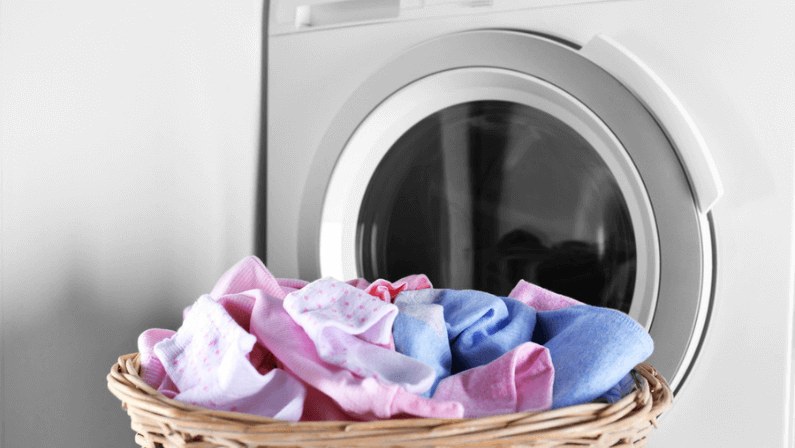
Thinking of washing delicates in a machine? Taming the washing machine for your delicate laundry or garments can feel like a daunting task. By following a few simple steps, you can transform your machine into a gentle haven for your favorite silks, knits, and lace.
Accessories like scarves also require careful handling to maintain their quality and appearance. Whether made from silk or other delicate fabrics, scarves can be washed using similar gentle methods to ensure they remain a stylish addition to your wardrobe.
Pre-treat stains.
Address any stains before washing. A gentle stain remover formulated for delicates can be used, but always test it on an inconspicuous area first.
Turn garments inside out.
This protects embellishments like beads, sequins, and buttons from catching on other items in the wash.
Use a mesh laundry bag.
This provides extra protection during the wash cycle, especially for delicate items like lingerie or knitwear.
Select the delicate cycle.
Choose a cold water wash with low spin speed. Look for cycles specifically labeled “delicate” or “hand wash” on your washing machine.
Use delicate detergent.
Opt for a gentle detergent formulated for delicates. These detergents are typically free of harsh chemicals and enzymes that can damage delicate fabrics. They also tend to produce less suds, which can be difficult to rinse out of delicate materials.
Don’t overload the washer.
Limit the amount of clothes you wash at once. This allows for proper water flow and movement within the machine, preventing excessive wrinkling or tangling of your delicates.
How to Wash Delicate White Clothes
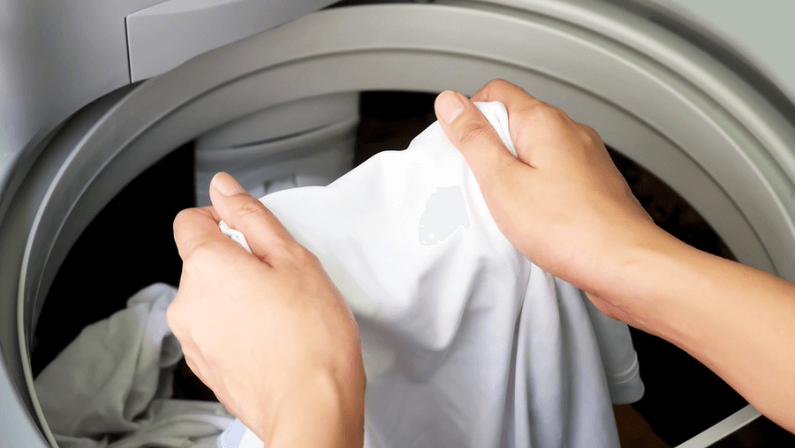
Keeping your delicate white clothes looking their brightest can be a delicate dance. Harsh detergents and rough washing methods can quickly dull their pristine look. However, with a few special considerations, you can achieve sparkling white garments while maintaining their delicate nature.
1. Separate whites from colors.
Always wash white delicates separately from colored items to prevent color bleeding.
2. Pre-soak in oxygen-based bleach (optional).
An oxygen-based bleach can be helpful for brightening white delicates. Follow the product instructions for appropriate dilution and soaking time. Be aware that chlorine bleach should never be used on delicate fabrics.
3. Use a detergent designed for whites.
These detergents often contain brightening agents that can help maintain the white color of your garments.
How to Wash Delicate Clothes by Hand
For your most treasured garments, a gentle touch is essential. Hand-washing delicate clothes offers a level of care that washing machines simply cannot match. This method allows you to personally attend to each piece, ensuring intricate details and fragile fabrics are treated with the utmost care.
1. Fill a basin with water.
Use cool water, then add a small amount of delicate detergent.
2. Swish garments gently.
Avoid vigorous scrubbing or wringing, which can damage the fabric. Instead, gently agitate the clothes in the water.
3. Rinse thoroughly with cool water.
Remove all soap residue by rinsing the garments several times in clean water. Squeezing gently can help remove excess water without wringing.
Treating Stains on Delicate Clothing
A splash of wine, a dot of makeup – accidents happen, and often on our most delicate garments. The thought of treating a stain on a favorite silk blouse or cashmere sweater can send shivers down your spine. However, with a swift response and the right approach, you can conquer even the trickiest stain without harming the delicate fabric.
- Act quickly: Blot up spills or stains immediately with a clean, absorbent cloth. The quicker you act, the easier it will be to remove the stain.
- Use a gentle stain remover: Choose a stain remover specifically formulated for delicate fabrics. Always test the stain remover on an inconspicuous area of the garment first to ensure it doesn’t cause discoloration.
- Never use harsh chemicals: Strong detergents, bleach, or stain removers can damage delicate fabrics. Avoid using any cleaning products not specifically designed for delicates.
- Seek professional help: For particularly stubborn stains or if you’re unsure about the best approach, seeking professional help from a trusted washateria, such as Clutch City Laundry, can ensure your delicate garments receive proper stain removal treatment while maintaining their delicate nature.
How To Look for the Best Laundry Detergent for Delicate Clothes
Choosing the right detergent is paramount when caring for your delicate garments. Harsh chemicals and abrasive ingredients can wreak havoc on these precious fabrics, leading to fading, shrinking, and loss of shape.
Here are some things to consider when choosing:
- Look for detergents labeled “delicate” or “gentle.” These detergents are mild on fabrics and contain fewer harsh chemicals that can cause fading or damage.
- Avoid harsh detergents with perfumes or dyes. These additives can irritate the skin and potentially damage delicate fabrics.
- Consider natural wool washes for wool and cashmere garments. Special wool washes are designed to clean these delicate materials without causing shrinkage or felting.
- Bring your laundry to a washateria. Professional laundry services typically use detergents formulated for delicates, containing milder ingredients and fewer suds for effective cleaning without compromising the fabric’s integrity.
Frequently Asked Questions
Confused about the delicate wash cycle or unsure about how to handle your little one’s garments? Don’t worry, this FAQ section clarifies any lingering doubts you might have.
How do you dry delicate fabrics or clothing?
Air drying is highly recommended for delicate clothes. Lay the garments flat on a drying rack or clean towel away from direct heat and sunlight. This gentle approach also applies to rented dresses, or rental dress items, ensuring their longevity and quality.
Does delicate wash clean clothes?
Yes, a delicate wash cycle effectively cleans clothes! While it uses cooler water temperatures and slower drum rotations compared to a regular cycle, it’s designed to remove dirt and stains without damaging delicate fabrics.
What to wash on a delicate cycle?
When in doubt, opt for the delicate cycle for:
- Silk, lace, lingerie
- Wool, cashmere
- Knits, sheers
- Garments labeled “delicate” or “hand wash.”
- Bathing suits, dress shirts/blouses (especially delicate fabrics).
- Lightly soiled items, clothes with embellishments.
Do you wash baby clothes on delicate?
Not all baby clothes require a delicate wash. Typically, everyday wear like cotton onesies can be washed on a regular cycle with similar-colored items. However, for delicate baby clothes made from silk, cashmere, or with intricate embellishments, opting for a gentle wash cycle or hand-washing is recommended. Always check the care label on your baby’s clothes for specific washing instructions.
Conquer Delicates Like a Pro
Keeping your delicate garments looking their best doesn’t have to be a mystery. Remember, a little extra care goes a long way. By following these simple steps and incorporating the valuable tips within this guide, you can ensure your delicate garments stay looking their best for years to come.
For those times when caring for delicates at home proves challenging, consider professional laundry services. Look for a reputable washateria in Houston that offers delicate care options, such as Clutch City Laundry. Contact them today!






